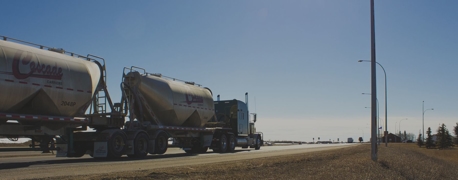What Happens If a Truck Is Overweight?

Semi-truck accidents are among the most dangerous type of highway collisions due to the sheer weight and size of these massive vehicles. 18-wheelers, tractor-trailers, and semis are often loaded down with large quantities of products or heavy equipment. An accident with one of these massive vehicles can be dangerous or even deadly for other drivers on the road, operating regular passenger cars—especially if trucks are overweight.
What happens if a truck is overweight? It can have disastrous consequences for anyone in the vicinity.
Regulations Against Overweight Trucks
Transporter trucks are an important part of our national economy and market structure. Nevertheless, they do carry certain risks. Due to the inherent dangers posed by large trucks, the federal government has established a set of regulations designed to protect drivers on American roadways. These regulations are established by the Federal Motor Carrier Safety Administration (FMCSA). State governments have established rules for truck drivers and truck companies to follow as well.
This includes regulations against:
- Trucks that are overweight
- Trucks that are overloaded
- Trucks that are improperly loaded
Gross Vehicle Weight Rating (GVWR)
Truck manufacturers must mark their vehicles with an accurate Gross Vehicle Weight Rating (GVWR), visible on the truck’s license plate.
A truck’s GVWR is established by examining and rating a number of factors, including the:
- Suspension
- Number of axles
- Powertrain
- Braking ability
- Frame
No commercial truck may carry more than its GVWR allows. Additionally, the GVWR may not be in excess of 80,000 pounds, except in certain cases involving intrastate trucks. If there is no plate, the FMCSA dictates that law enforcement officers should assume a rating of 26,001 pounds or more.
In order to ensure that truck drivers are following these regulations, they are required to stop at weigh stations along their routes. This requirement is designed to serve as an enforcement and monitoring tool. Unfortunately, some truck drivers have found ways around this regulation by failing to lighten an illegal load even after the weight stop has proven in excess of the vehicle’s GVWR.
Why Are Overweight Trucks Dangerous?
A large truck’s performance can take a major hit when its GVWR is surpassed. The downhill velocity can be affected, for example, causing excess strain on the brakes and possible break failure. Additionally, an overweight load is less likely to be secure, which can lead to items becoming dislodged and falling off during transit. Another risk is that the vehicle’s load can shift in a way the truck was not designed to handle, causing imbalance and overloading on one axle above another. Incorrect weight distribution has been linked to truck accidents.
When a truck is overweight, the other consequences can include:
- Loss of control while steering
- Tire blowout
- Rollover accidents caused by an elevated center of gravity
- Brake failure
- Decrease in stopping time
- Increased velocity traveling downhill
- Difficulty climbing inclines
Who Is Responsible for Overweight Truck Accidents?
Truck drivers have a responsibility to adhere to all state and federal regulations in operating their vehicles. Other drivers are placed at a higher risk when truck operators fail to observe the regulations set out for them. In some cases, drivers are pressured by their employers to exceed weight limits or to ignore other FMCSA and state regulations in order to meet deadlines and other goals. Truck companies also bear a responsibility to put safety above profit.
Every case is unique. If you or a loved one was involved in a truck accident, contact an experienced truck injury attorney. Our team at Arnold & Itkin has years of experience and a superior track record of case success.


